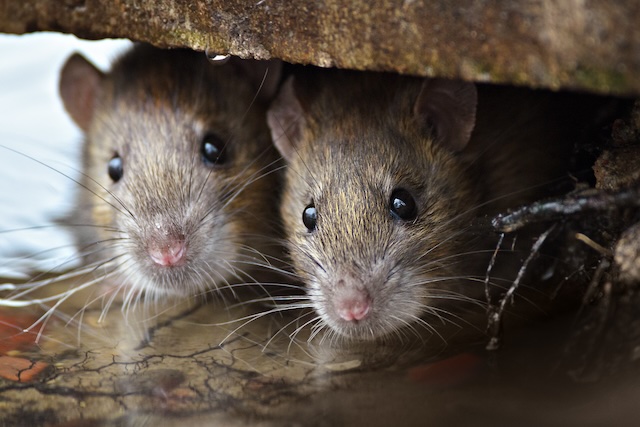Rats have lived with people for hundreds of years because they are common and can adapt to new situations. Even though they are usually not wanted, they are not just a threat because they chew and build nests. Because rats carry diseases, having a lot of them can be very bad for your health. To get rid of pests effectively and protect public health, it’s important to know about these risks.
**1. **Leptospirosis: Reptospirosis is one of the most scary diseases that rats can get. Rat urine, which can get into water or dirt, spreads this bacterial infection. Contact with contaminated water, either directly or through open cuts, can give people leptospirosis. Symptoms can be mild, like the flu, or very bad, like problems with the liver and kidneys.
2. Hantavirus: Another very dangerous virus that is linked to rats is hantavirus. If you touch rat droppings, pee, or saliva, you could get this virus. Hantavirus Pulmonary Syndrome (HPS) is a potentially deadly lung disease that can be caused by breathing in dust particles that are contaminated with the virus. Early signs can look like the flu, but they can quickly get worse and cause serious breathing problems.
3. Salmonellosis: Rats carry the Salmonella germs that can make people sick with salmonellosis. When you touch rat poop or eat or drink something that rats have contaminated, you become contaminated. People who have salmonellosis may have diarrhea, fever, and stomach cramps, which could lead to more serious problems.
Rat-Bite Fever: From what the name says, this disease is spread by rat bites or scratches. Handling rats or drinking water or food that has been tainted with their droppings can also make you sick. A fever, joint pain, and a unique rash are some of the symptoms.
5. The plague: This disease is still around and can be spread by rats, even though it is usually linked to past pandemics like the Black Death. The bacteria that cause bubonic, septicemic, or pneumonic plague are carried by fleas that live on rats. Human plague is still very rare, but it does happen, and getting medical help right away is very important for healing.
6. Murine Typhus: This is a bacterial illness that is spread by fleas that live on rats. Infections can happen from flea bites or touching rat poop that is dirty. Fever, headaches, and aches and pains in the muscles are some of the symptoms. Cases are usually mild, but they can get very bad.
7. Rickettsial illnesses: Rats can also spread rickettsial illnesses, such as rickettsialpox and Q fever. Rickettsialpox is spread by mites that feed on rats. It has a fever and a rash that is easy to spot. If you breathe in dust that has been contaminated with rat urine or feces, you could get Q fever. This can cause flu-like symptoms and, in some cases, long-term problems.
How to Stop Diseases Caused by Rats:
Complete rat control methods are the first step to effective prevention:
Seal Entry Points: Look for any holes or gaps in buildings or structures that rats could use to get inside and seal them.
Maintain Hygiene: Keep your living area clean, get rid of food sources, and clean up any signs of rat activity right away to practice good hygiene.
Secure Waste Management: Make sure trash is thrown away safely and keep the lids on trash cans tight so rats can’t get to the food inside.
Professional Pest Control: To get rid of rats completely and learn how to keep them from coming back, hire professional pest control services.
Education and Awareness: Teach people about the risks of diseases spread by rats, with a focus on how to avoid getting sick and how to find problems early.
To sum up, rat outbreaks are very bad for your health because rats carry diseases. To stop the spread of diseases caused by rats, people need to be more aware of the problem, take proactive steps to get rid of pests, and practice good cleanliness. An early response, careful cleanup, and professional help are all important parts of a complete plan to protect against the health risks that rats pose.
